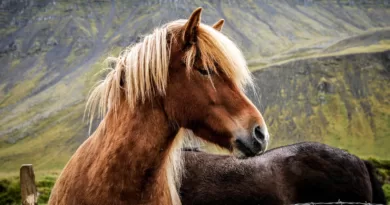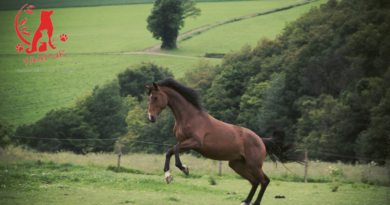Do Horses Get Fleas
Common Parasites Affecting Horses
Horses, like many other animals, can be plagued by various parasites that can cause discomfort and potentially serious health issues. Among the most common parasites affecting horses are internal parasites such as roundworms, tapeworms, and strongyles. These parasites reside in the intestines and can lead to weight loss, poor coat condition, diarrhea, and even colic if left untreated. Regular deworming, along with pasture management and proper hygiene practices, is essential in preventing and controlling these internal parasites.
In addition to internal parasites, horses are also susceptible to external parasites which include flies, ticks, and mites. Flies, in particular, can be a nuisance to horses, causing skin irritations, allergies, and transmitting diseases. Tick bites can lead to diseases such as Lyme disease and anaplasmosis, while mites can cause mange and intense itching. Implementing measures such as fly repellents, fly sheets, and regular grooming can help minimize the risk of external parasites and keep horses comfortable and healthy.
Understanding Fleas and Their Hosts
Fleas are tiny, wingless insects that are known for their ability to jump long distances. They are ectoparasites, meaning they live on the outside of their hosts. While fleas can infest a variety of animals, they are particularly known for afflicting dogs and cats. However, they can also become a nuisance for horses.
Horses can become hosts to fleas when they come into contact with infested animals or environments. Fleas are attracted to warm-blooded hosts, as they require blood meals to survive and reproduce. Once on a horse, fleas can cause itchiness and discomfort, leading to scratching and potential skin infections. It is important for horse owners to be vigilant in identifying flea infestations and taking necessary measures to control and prevent them. Understanding the life cycle and behavior of fleas can assist in effectively managing these pests and ensuring the well-being of horses.
External Parasites Found on Horses
Horses can be vulnerable to a variety of external parasites that can cause discomfort and potential health issues. One common external parasite found on horses is the tick. These small arachnids attach themselves to the horse’s skin and feed on its blood. Not only can tick bites cause irritation and inflammation, but they can also transmit diseases such as Lyme disease and equine piroplasmosis. Regular grooming and thorough inspection of the horse’s body can help identify and remove ticks promptly.
Another external parasite that affects horses is the louse. These small insects infest the horse’s mane, tail, and body, causing intense itching, hair loss, and skin irritation. Lice can quickly spread among horses in close proximity, such as those in the same stable or pasture. Treatment for lice infestations often involves the use of insecticidal sprays, shampoos, and powders specifically designed for horses. Additionally, maintaining good hygiene and regularly cleaning and disinfecting the horse’s environment can help prevent lice infestations.
Identifying Flea Infestations in Horses
Flea infestations in horses can be a cause of discomfort and irritation for these animals. To identify if your horse has been infested with fleas, there are several telltale signs to look out for. One of the most common indicators is excessive scratching, biting, or rubbing of the skin, particularly in areas where fleas are known to hide, such as the mane, tail, and underbelly. Additionally, if you notice small, red, itchy bumps on the horse’s skin, it may be a result of flea bites. These bumps can be especially prominent around the head, neck, and tail base.
Another indication of a flea infestation in horses is the presence of flea dirt, which is actually flea feces. Flea dirt resembles small black specks and is commonly found on the horse’s skin, mane, and tail. To determine if it is indeed flea dirt, you can place some of it onto a damp white cloth or paper towel and smear it. If the dirt turns a reddish-brown color, it is likely flea dirt because it contains digested blood. However, it is important to note that other parasites, such as lice, can also cause similar symptoms, so proper diagnosis from a veterinarian is essential.
Factors Contributing to Flea Infestations in Horses
Flea infestations in horses can be caused by various factors that create an environment conducive for these parasites to thrive. One major contributing factor is poor hygiene and inadequate grooming practices. Horses that are not regularly brushed and cleaned are more likely to attract fleas, as their coats provide a warm and cozy habitat for these pests. It is essential to establish a consistent grooming routine to ensure that horses’ coats remain clean and free from potential flea infestations.
Another factor that can contribute to flea infestations in horses is the presence of other animals that serve as carriers or hosts for these parasites. Horses that share living spaces with other animals, such as dogs or cats, may be at a higher risk of flea infestations. Fleas can easily jump from one host to another, and if these animals are not properly treated for fleas, they can introduce the parasites into the horse’s environment. It is crucial to regularly treat all animals on the premises for fleas to prevent infestations from spreading among different species.
Health Risks Associated with Fleas in Horses
Fleas not only cause discomfort to horses, but they also pose health risks. The incessant itching and scratching caused by flea bites can lead to skin irritation and inflammation in horses. This can result in hair loss, open sores, and secondary infections. Additionally, excessive scratching can lead to self-inflicted injuries, increasing the risk of bacterial or fungal infections.
Apart from skin issues, fleas can also transmit diseases to horses. Fleas are known to be carriers of various bacteria and parasites, including tapeworms, which can infect horses when they ingest fleas during grooming. These parasites can cause gastrointestinal issues and interfere with the horse’s nutrient absorption, leading to weight loss and poor overall health. Furthermore, fleas can introduce pathogens into a horse’s bloodstream, potentially causing more serious conditions such as fever, anemia, and even systemic infections.
It is essential for horse owners to be aware of these health risks associated with fleas and take proactive measures to prevent infestations. Maintaining a clean and hygienic environment, implementing regular flea control measures, and working closely with veterinarians can help protect horses from the risks posed by these pesky parasites.
Preventive Measures for Flea Control in Horses
To effectively control fleas in horses, preventative measures should be implemented. One key measure is maintaining good hygiene and cleanliness in the horse’s living area. Regularly cleaning and disinfecting stables, stalls, and bedding can help eliminate flea eggs and larvae, reducing the chances of infestation. Additionally, removing any sources of food and shelter for fleas, such as decaying organic matter or debris, can further discourage their presence.
Another important preventive measure is regular grooming and inspection of horses. Brushing the horse’s coat regularly not only promotes healthy skin and hair, but also helps in detecting any signs of flea activity. Paying close attention to areas where fleas tend to hide, such as the base of the tail, under the mane, and in the armpits, can help identify infestations early on. Prompt removal of any fleas or their eggs can prevent further spread and reduce the risk of related health issues.
By implementing these preventative measures, horse owners can significantly reduce the likelihood of flea infestations, promoting the overall well-being and comfort of their equine companions. However, it is important to note that in certain cases, despite taking all precautions, flea infestations may still occur. In such instances, seeking professional guidance from a veterinarian can be beneficial to develop an effective flea control plan tailored to the individual horse’s needs.
Natural Remedies for Treating Fleas in Horses
There are several natural remedies that can be used to treat fleas in horses. One option is diatomaceous earth, a fine powder made from the fossilized remains of tiny aquatic organisms called diatoms. When sprinkled onto the horse’s coat and bedding, diatomaceous earth acts as a desiccant, drying out the fleas and eventually killing them. Another natural remedy is apple cider vinegar, which can be added to the horse’s feed or diluted and used as a spray. The acidity of the vinegar can help repel fleas, making it a useful preventative measure.
Essential oils are also commonly used as natural flea treatments for horses. Oils like lavender, peppermint, and eucalyptus can be diluted and applied to the horse’s coat, or even added to their shampoo. These oils have insect-repelling properties and can help to deter fleas. However, it’s important to use essential oils with caution, as some horses may have sensitivities or reactions to certain oils. Always consult with a veterinarian before applying essential oils to your horse.
Collaborating with Veterinarians for Flea Management
Collaboration with veterinarians is essential for effective flea management in horses. These professionals have the knowledge and expertise to accurately diagnose flea infestations and prescribe appropriate treatments. With their understanding of the various products available, veterinarians can recommend the most suitable options for flea control in horses, taking into consideration factors such as the horse’s age, health status, and any other specific needs.
When collaborating with veterinarians, horse owners can benefit from their guidance on preventive measures to reduce the risk of flea infestations. These experts can offer advice on maintaining a clean and hygienic environment, such as regular grooming, the use of appropriate insecticides, and proper disposal of waste materials. Additionally, veterinarians can educate owners on the signs and symptoms of flea infestations, enabling early detection and prompt treatment. Through collaboration, horse owners can ensure the well-being and comfort of their animals, promoting a flea-free environment and minimizing any potential health risks associated with these parasites.
Conclusion: Maintaining a Flea-Free Environment for Horses
To maintain a flea-free environment for horses, it is essential to implement proper preventive measures. Regular grooming and inspection of horses can help identify any flea infestations early on. This includes checking for signs of itching, hair loss, or the presence of fleas and their eggs on the animal’s coat.
In addition, keeping the horse’s living area clean and free of debris can deter fleas from taking up residence. Regularly mucking out stables and removing any stagnant water sources can help minimize the likelihood of flea infestations. It is also advisable to keep the grass and vegetation around the horse’s environment well-trimmed, as this can reduce the presence of fleas and their hosts.
Collaborating with veterinarians is crucial for effective flea management in horses. They can provide guidance on suitable flea control products and recommend appropriate treatment methods. Veterinarians can also offer advice on natural remedies and holistic approaches to flea control, considering the specific needs and sensitivities of individual horses.
By implementing these preventive measures and seeking guidance from veterinarians, horse owners can significantly reduce the risks associated with flea infestations. Establishing a flea-free environment not only promotes the health and well-being of the horses but also ensures a comfortable and safe living environment for both animals and their handlers.
What are some common parasites that affect horses?
Common parasites that affect horses include fleas, ticks, lice, and mites.
How can we understand fleas and their hosts?
Fleas are external parasites that feed on the blood of their hosts, including horses. Understanding their life cycle and behavior can help in effective flea control.
What are some external parasites found on horses?
Besides fleas, external parasites found on horses can include ticks, lice, and mites.
How can we identify flea infestations in horses?
Signs of flea infestations in horses can include itching, hair loss, skin irritations, and the presence of flea dirt (small black specks) on the horse’s coat.
What factors contribute to flea infestations in horses?
Factors that contribute to flea infestations in horses can include poor hygiene, lack of flea control measures, and exposure to fleas from other animals or environments.
What health risks are associated with fleas in horses?
Fleas can cause allergic reactions, skin infections, anemia, and transmit diseases in horses, making them a significant health risk.
What are some preventive measures for flea control in horses?
Preventive measures for flea control in horses include regular grooming, proper hygiene, maintaining a clean environment, and using flea control products recommended by veterinarians.
Are there any natural remedies for treating fleas in horses?
Yes, there are some natural remedies for treating fleas in horses, such as using essential oils, herbal sprays, or diatomaceous earth. However, it is important to consult with a veterinarian before using these remedies.
How can we collaborate with veterinarians for flea management?
Collaborating with veterinarians for flea management involves seeking their advice, getting regular check-ups for horses, following their recommended flea control program, and reporting any concerns or changes in the horse’s condition.
What is the conclusion for maintaining a flea-free environment for horses?
The conclusion for maintaining a flea-free environment for horses is that it requires a combination of preventive measures, proper hygiene, regular grooming, and collaboration with veterinarians to effectively control and manage flea infestations.




